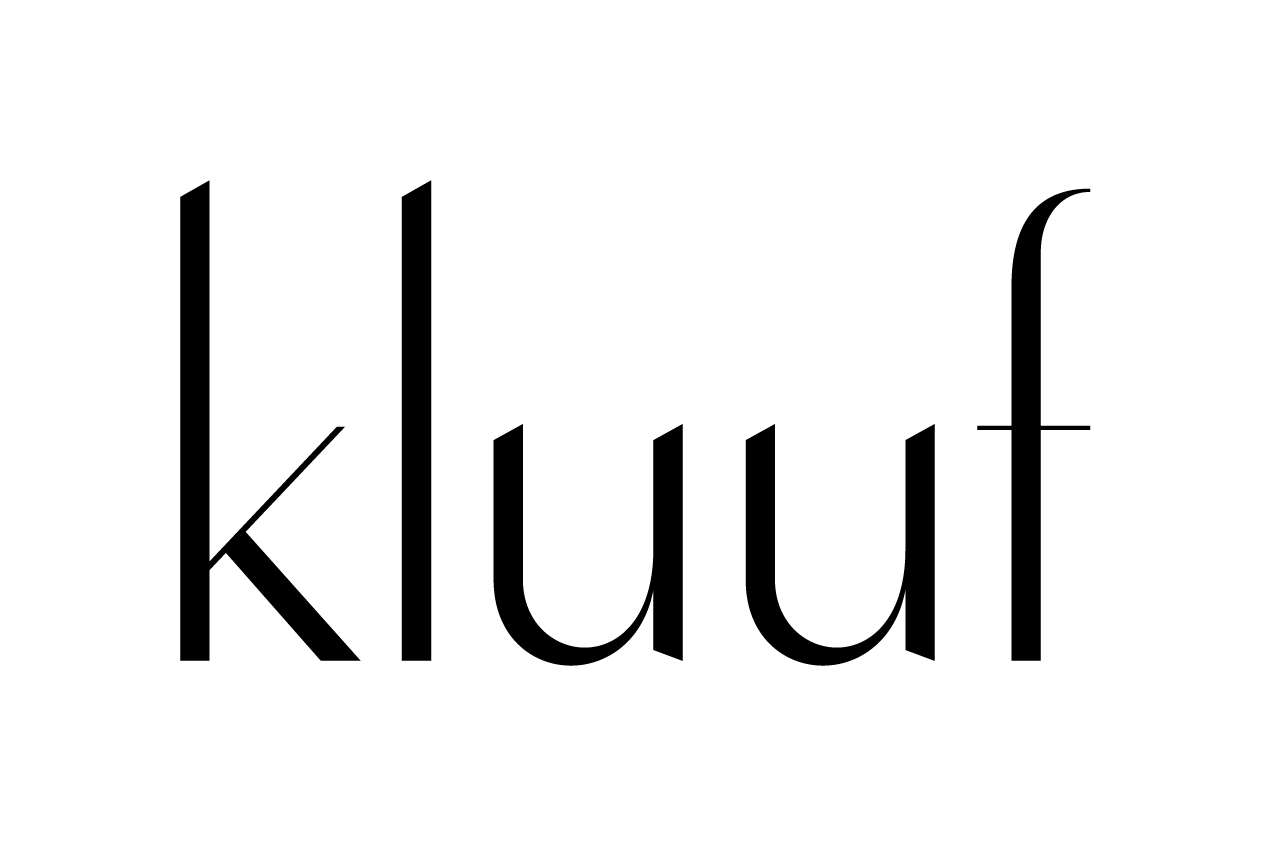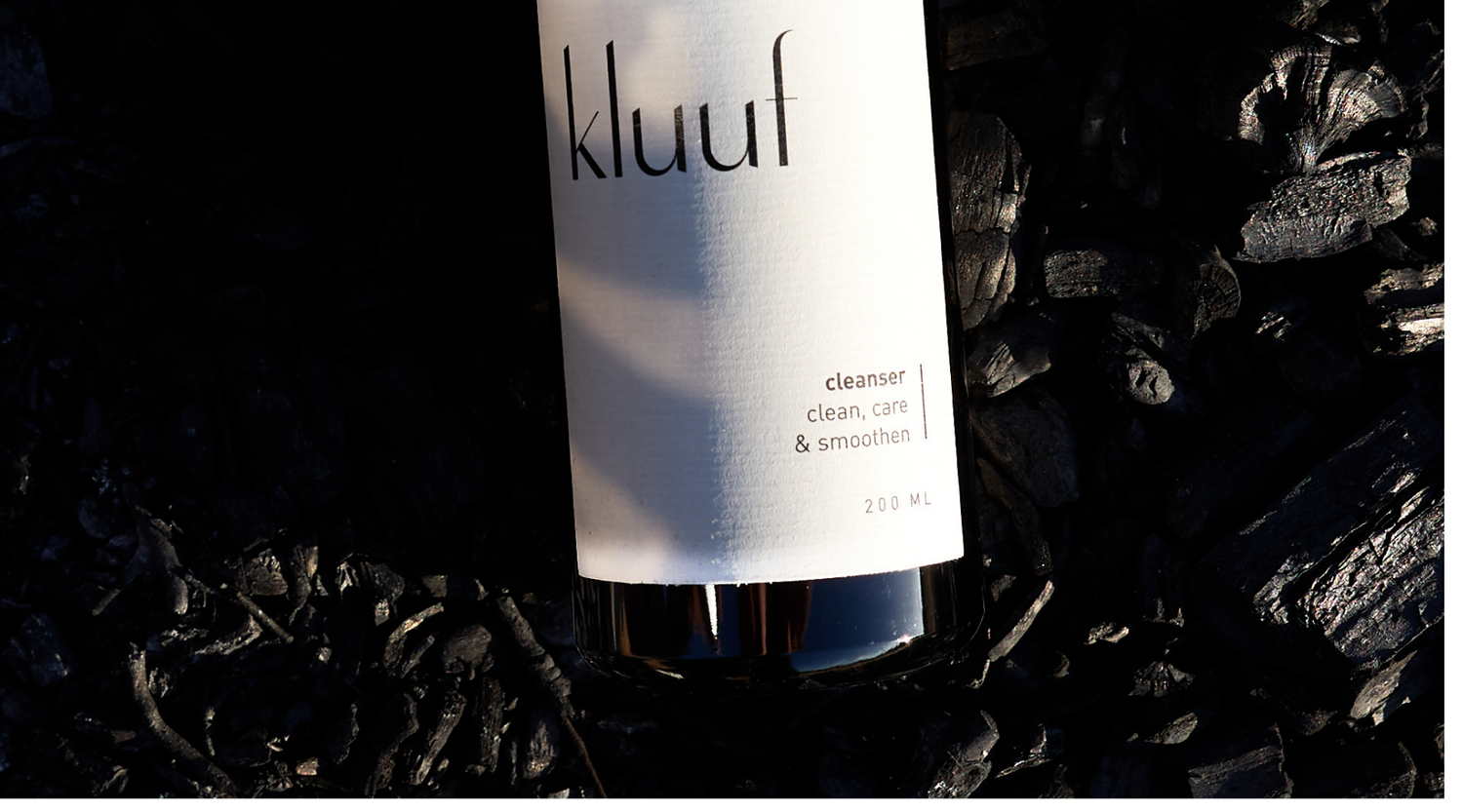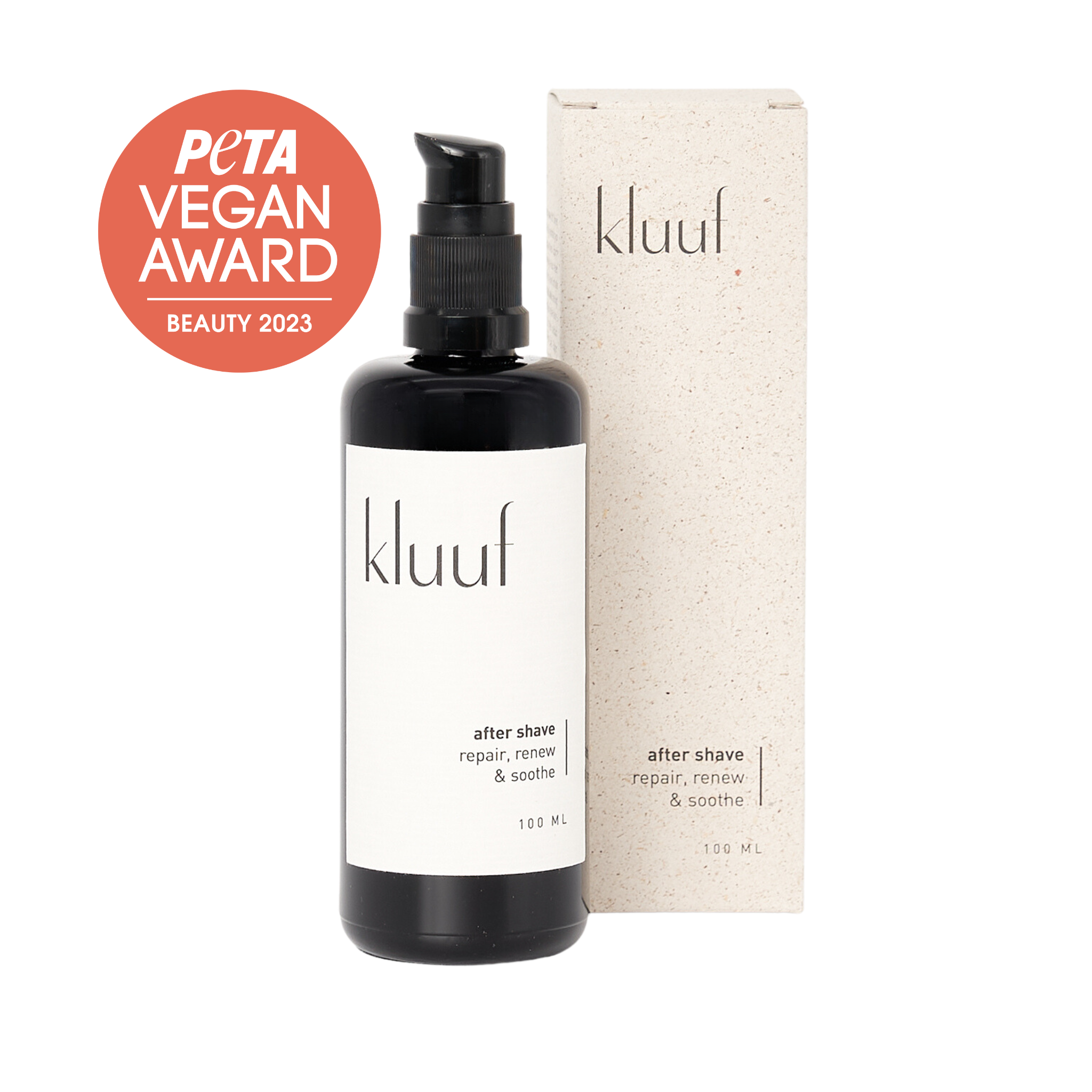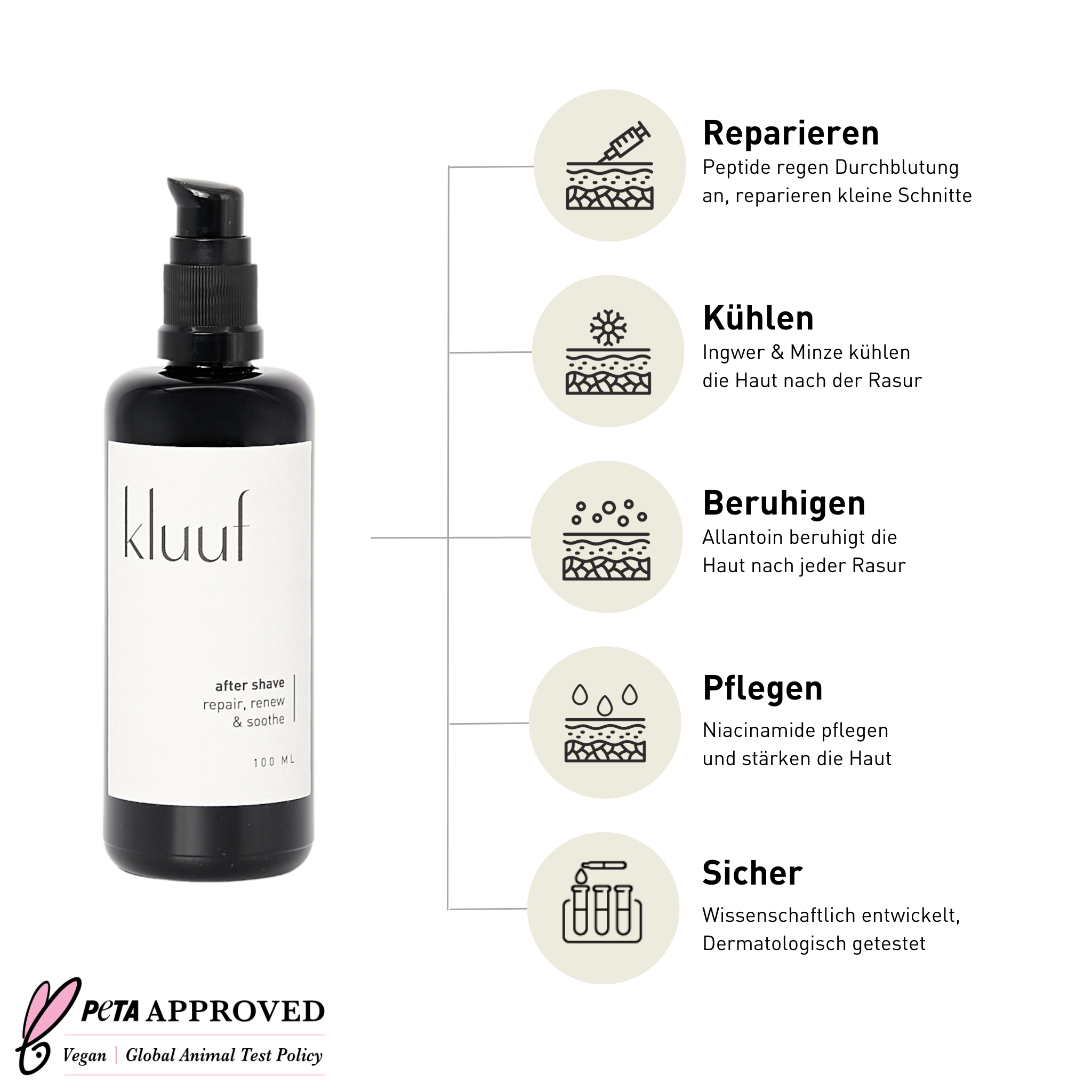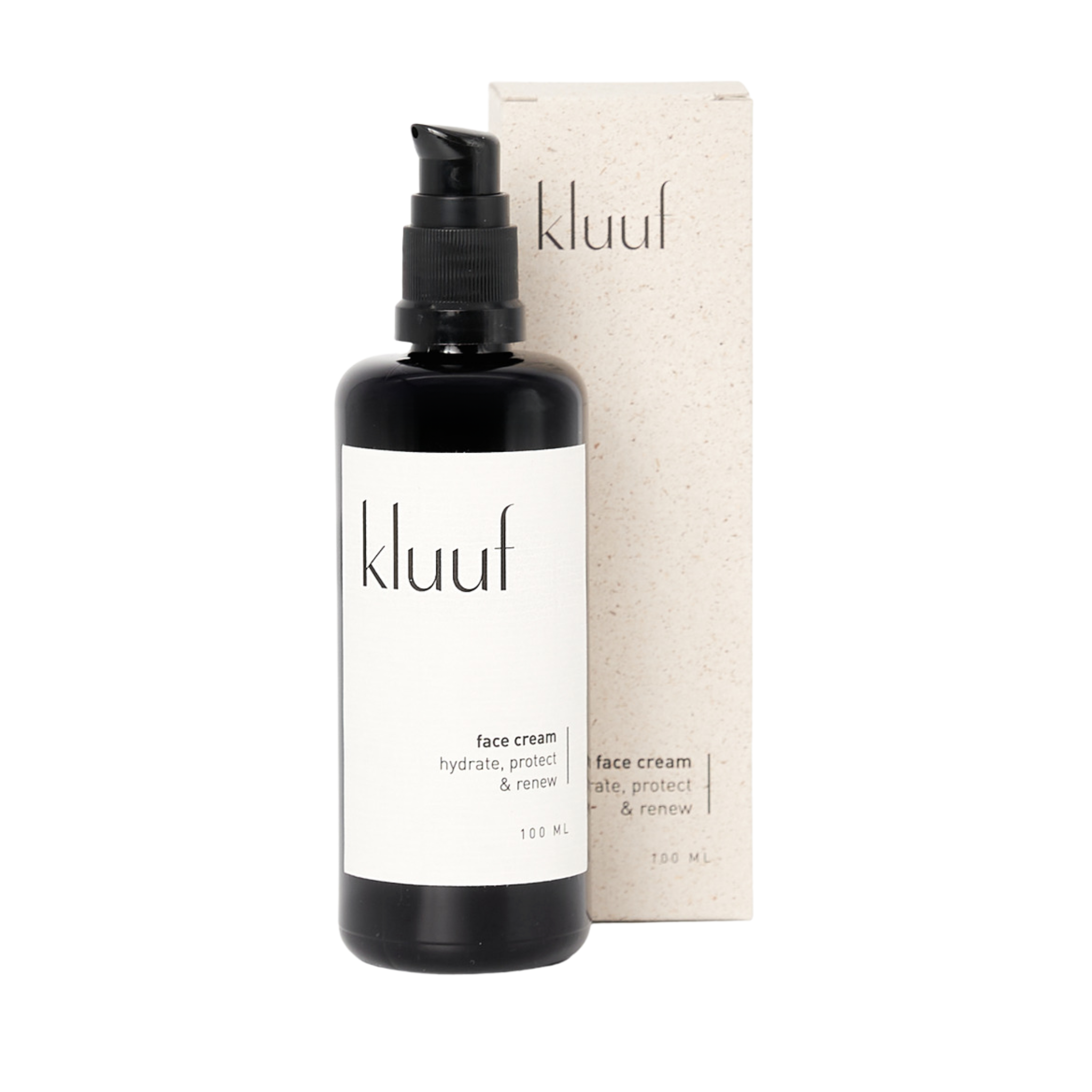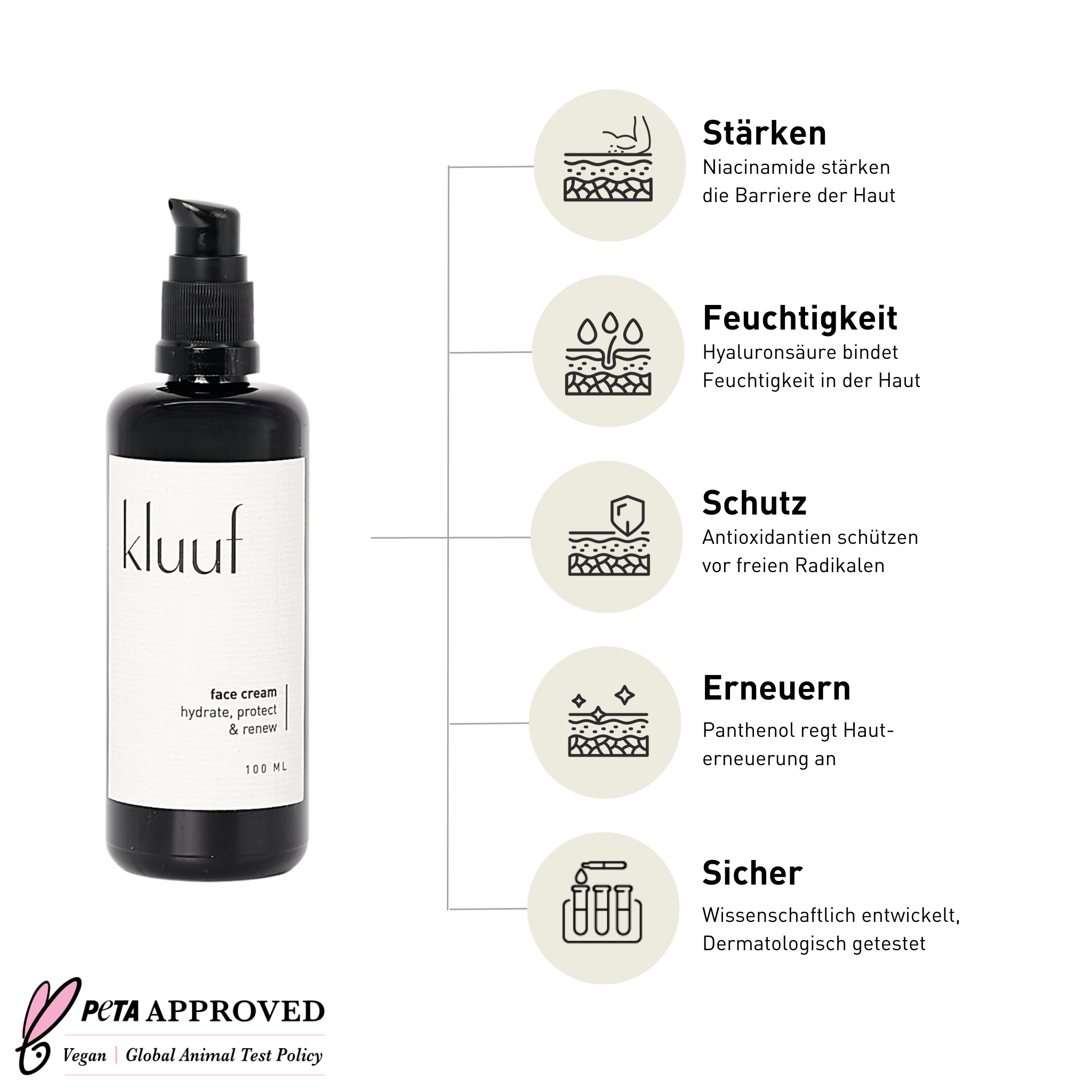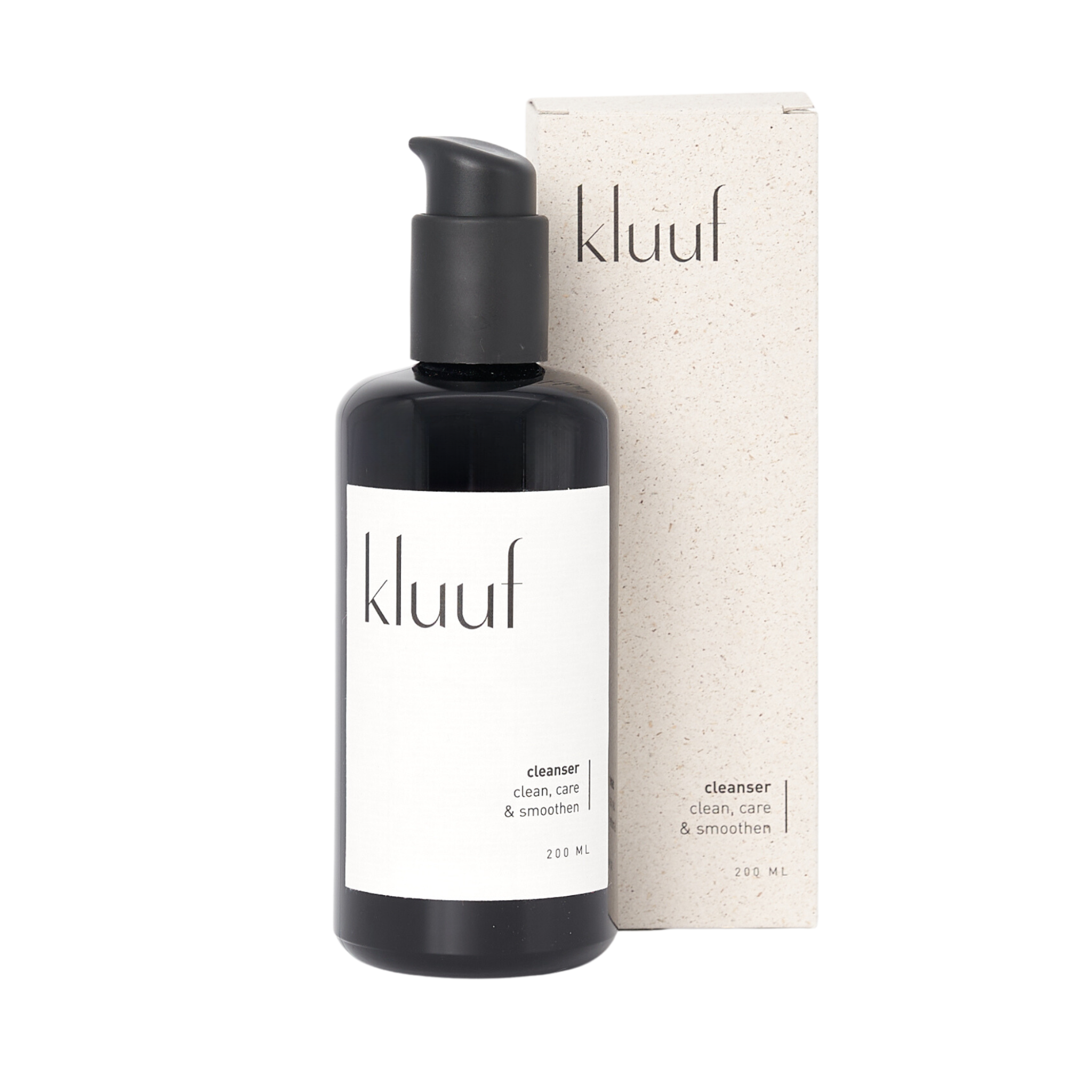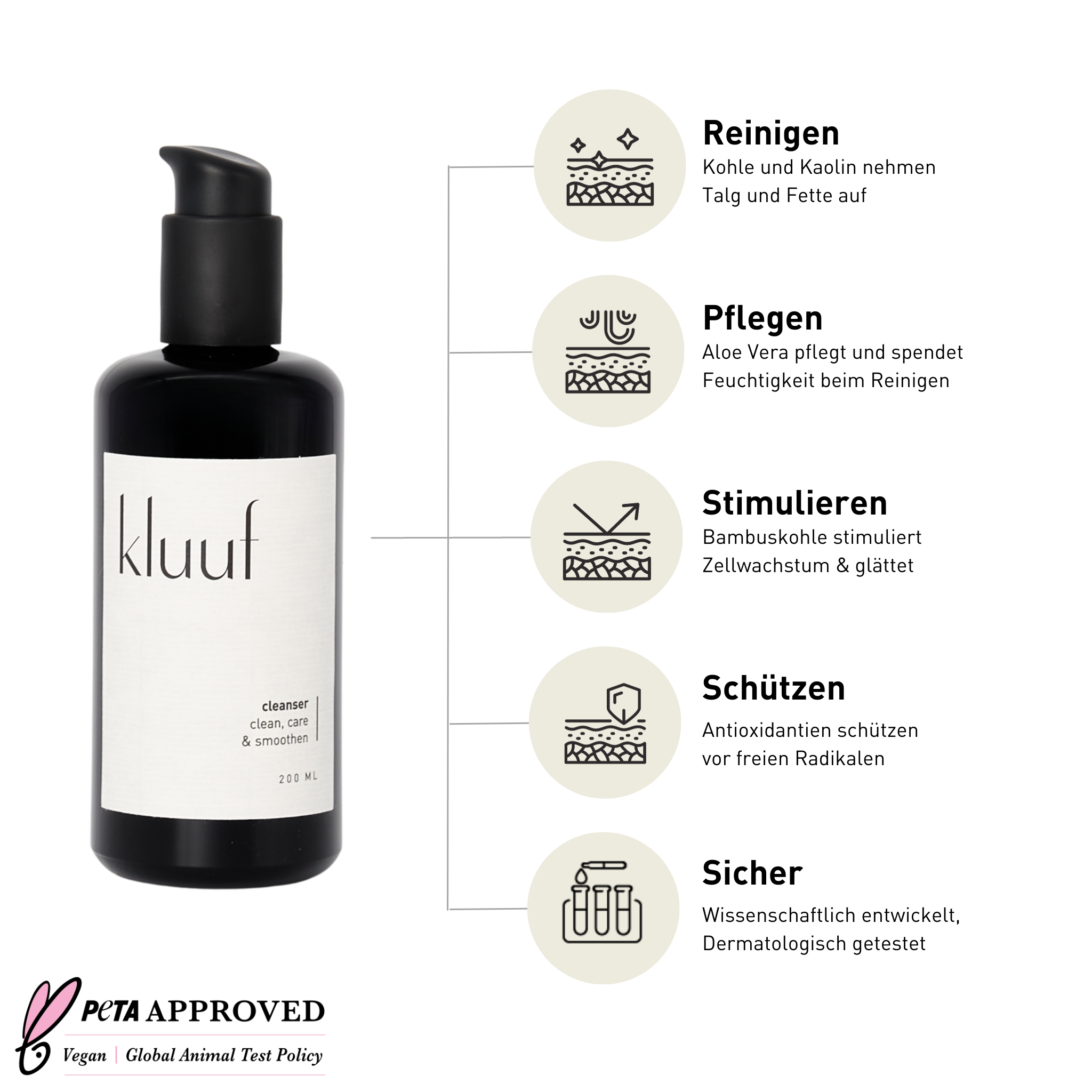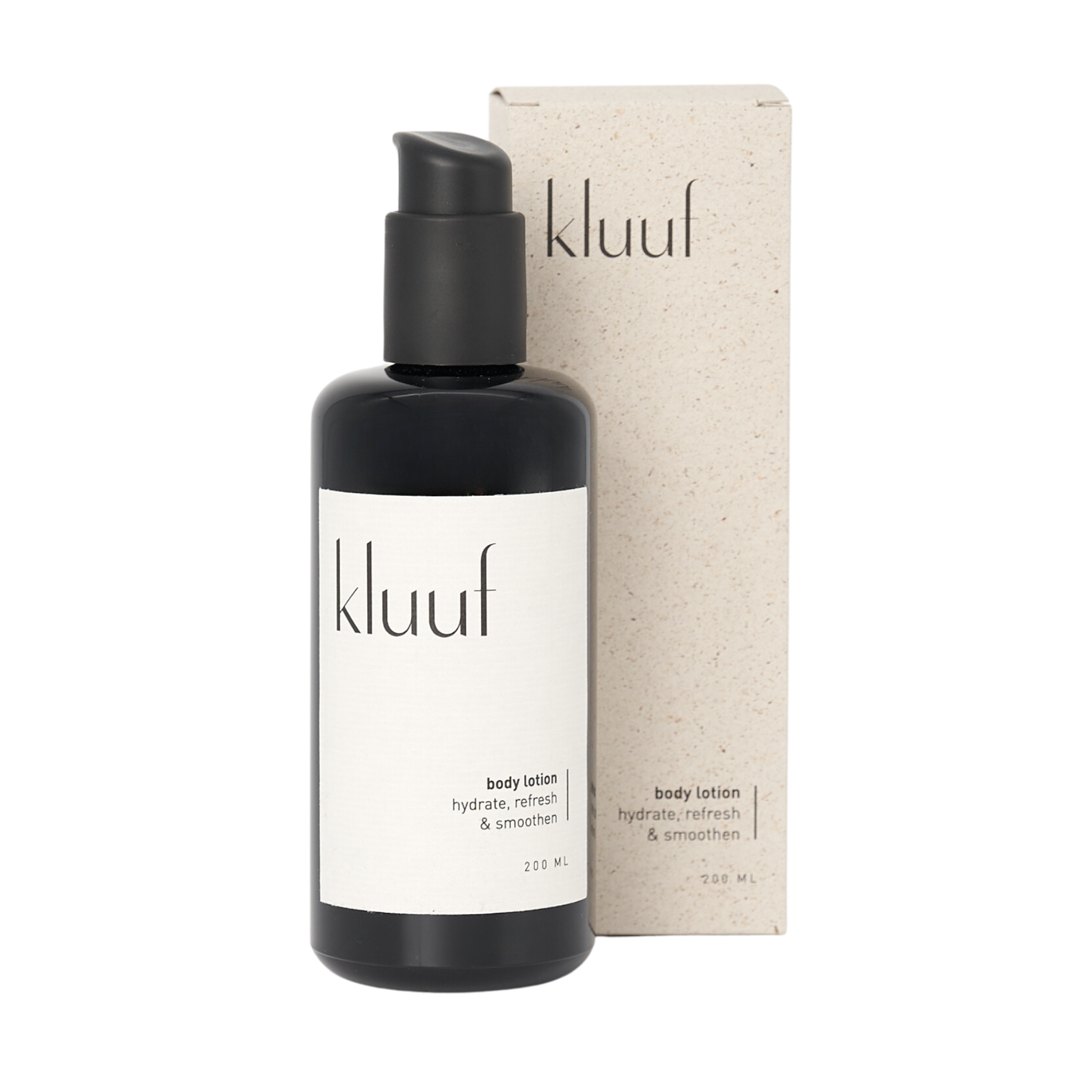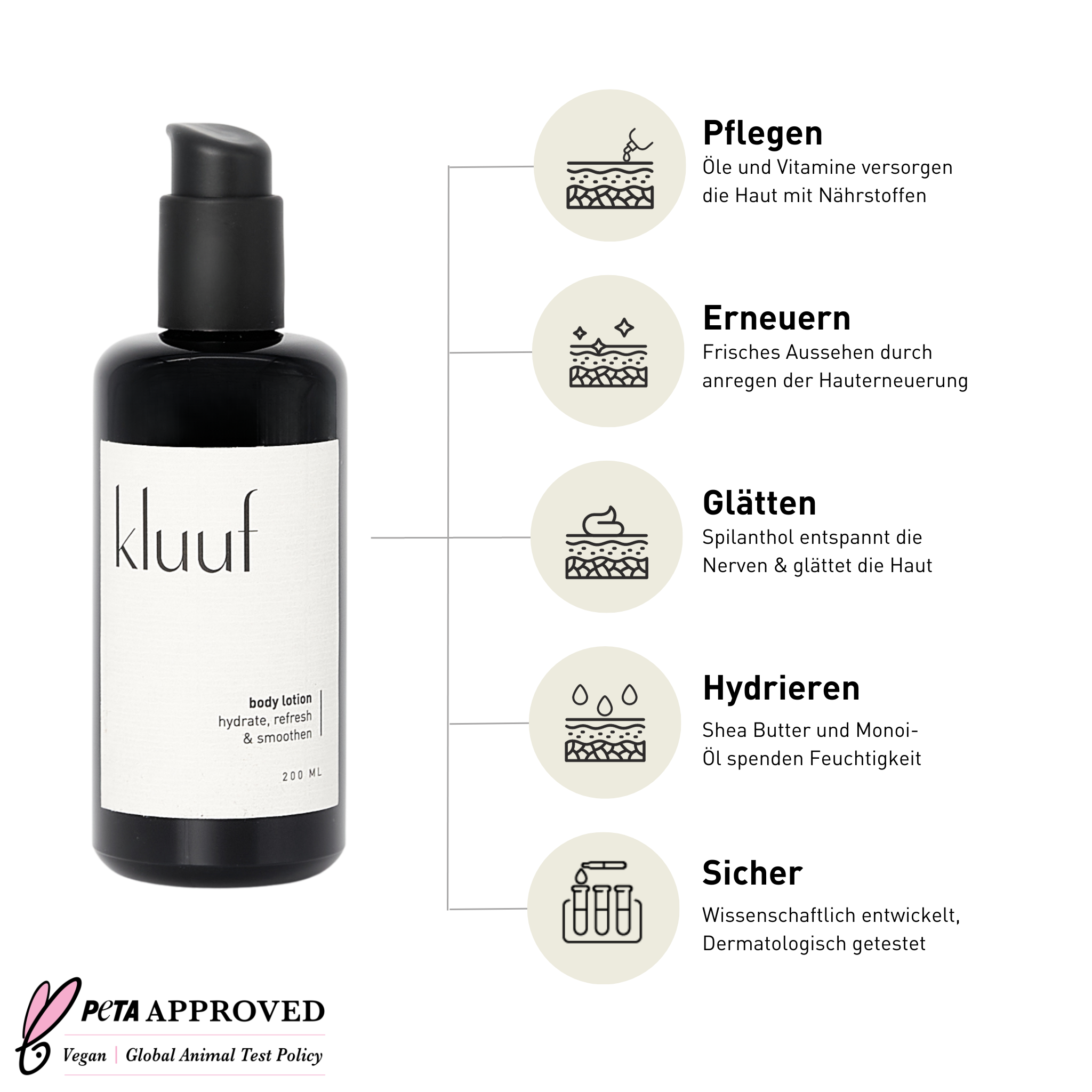Ingredients such as parabens or sulfates are still widely used products, although experts consider them to be unsafe or harmful to humans, animals or the environment. Apps such as Codecheck or Yuka have recently made it easier for consumers to check which products contain unsustainable and potentially harmful ingredients, with the help of a smartphone.
Kluuf deliberately designed its products so that they are completely free of defective raw materials and instead contain highly effective vegan alternatives. At the same time, we regularly exchange ideas with experts in order to be able to design our products according to the highest standards and to equip them with the best properties. Feel free to take a look at the codecheck and scan our products to see how they are classified.
But why are parabens or paraffins actually harmful and what are the better alternatives?
Parabens
Parabens are among the group of preservatives and are supposed to ensure a long shelf life of the products. They are classified into different types which are explored to varying degrees. Structurally, parabens are very similar to the hormone estrogen, which occurs in both women and men. Hence, scientists see the risk that parabens could influence our hormone balance. A fear that has come proved true in past studies on rats.
As is so often the case, parabens are frequently used in cosmetic products because they are inexpensive and get along well with other active ingredients.
For preservation, Kluuf prefers to use well-researched and harmless active ingredients such as pentylene glycol in our body lotion. This not only helps to make our products last longer, but also provides moisture at the same time.
Paraffins
Paraffins are a byproduct of mineral oil processing, which makes them very cheap. When used in skin care, paraffins form an artificial film on the skin, which prevents the skin from absorbing and releasing substances. Although the skin feels soft, it loses the ability to absorb nutrients and regenerate itself. Pores clog, sebum can no longer be properly removed and blackheads can form.
There is also a risk of paraffin accumulating in organs such as the liver or lymph, but also that the petroleum product will get into the wastewater during washing.
Instead, Kluuf works with vegetable oils, which are a much better alternative for the skin. Jojoba oil for example can be found in our in face cream, and it provides the skin with lasting moisture, and also contains plenty of antioxidants that protect against free radicals and skin damage.
PEG-based polymers
Polyethylene glycol, or "PEG" for short, is a polymer that can still be found in many products on the market, although it belongs to the microplastics category. PEGs are primarily used as emulsifiers (agents to bind ingredients together) and surfactants (agents to cleanse the skin). They also promote the skin's ability to absorb pollutants and are difficult for the human body to break down. In addition, PEGs have been criticized for being harmful to the environment: Microplastics enter the oceans via wastewater, where they contribute to environmental pollution and can harm organisms.
Kluuf does not use PEG-based polymers in any of its products and instead uses vegetable oils and natural lecithin, which is particularly gentle on the skin and is therefore the perfect companion for our aftershave.
Palm oil
Palm oil is a vegetable oil that regulates the consistency of many skin care products. The raw material can be found in many cosmetic products, but is also prominently represented in food. The high demand leads to the uncontrolled deforestation of the rainforests to create cultivation areas for the oil palm. This not only endangers the existence of countless endangered species, but also contributes to global warming.
Our products do not use palm oil and our raw material suppliers also almost exclusively do without the raw material. In the only active ingredient (polyglyceryl-10 stearate), where palm oil is essential, it has been proven to be grown sustainably and only palm oil certified by the RSPO is used.
Our products use sustainably cultivated vegetable oils as substitutes. For example, sustainable lemongrass oil which can be found in our cleanser.
We wrote a separate article about palm oil to better shed light on this complex topic and built consumer awareness.
Silicones
Silicones are made from petroleum and are often used in skincare products to form a pleasant and non-irritating film of moisture on the skin. However, this film is an impermeable foreign body that prevents important nutrients from being absorbed by the skin and impurities from being transported away. In addition, the surface moisture can be easily washed off, causing the synthetic and persistent substance to enter the sewage system.
Kluuf prefers to use vegetable oils for two simple reasons:
1. Silicones pollute the environment.
2. Vegetable oils are better for the skin because they allow breathing and contain valuable nutrients such as vitamins that can naturally build up long-lasting moisture.
Sulfates
Sulfates are a type of salt derived from sulfuric acid and are often used in skin care products to cleanse the skin, creating a foaming effect. However, the salts are so aggressive that the skin can swell and dry out. In addition, sulfates accumulate in the body, with effects that have not yet been fully researched. Long-term cleansing with sulfates can therefore by no means be called skin care, but rather damages the skin more than care for it.
Kluuf uses significantly milder surfactants for care, which are obtained naturally and clean the skin gently but still thoroughly. Natural coconut fatty acid is used in our cleanser for this purpose.
No animal products
Good skincare simply does not require any animal ingredients. Out of consideration for wildlife, we would like all manufacturers to recognize this and only use vegan ingredients. Unfortunately, this is often simply not the case due to financial reasons. The environmental impact would also be significantly lower as a result.
For Kluuf it goes without saying that all products are vegan from day one and to be honest it is easy to find alternatives to animal products. Our body lotion uses almond oil instead of creatine, and our aftershave simply uses vegetable allantoin instead of the animal alternative.
Vegan skin care is an important and not always easy topic, so we wrote a separate blog article about it.
Pollutants (further)
We have selected the raw materials explained because they are often at the heart of consumer interest and there are often ambiguities. However, the list of (allowed) ingredients that we do not use is much longer. Here is a short excerpt of what you will never find in our products:
Aluminum, mineral oil, benzophenones, artificial fragrances, synthetic dyes, nitrosamines, low-quality alcohols, parabens, paraffins, sulfates, microplastics, silicones, palm oil (not certified), aggressive or irritating raw materials and animal or animal-tested products.
" Kluuf dispenses with all the listed ingredients and many more. Instead, we rely on high-quality vegan active ingredients that are proven to be good for the skin and the environment.
For more information, most products (and all of ours) can be audited by independent partners like Codecheck to see if a product meets their standards ."
